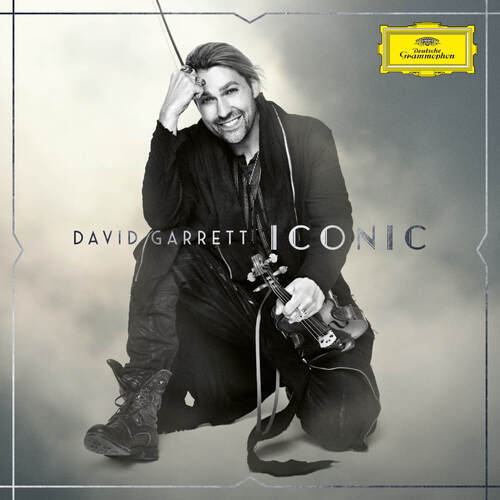German-American violin virtuoso takes America by storm
Какое-то давнее высказывание, и кажется, не особо стоящее. По идее, рекламная статья - но по настрою очень странная. Как будто автор сам никак не определится - как же относиться к этому парню - ругать? хвалить? держать нейтралитет? Но пусть будет - для коллекции.
Девочки, кто возьмется за перевод? Если чё - я и сама, но not yet.
Единственное - таки by storm? Непринципиально, но мне просто интересно - так кто же на его счет проснулся раньше, Европа или Америка?
Preview: German-American violin virtuoso takes America by storm
David Garrett puts plenty of Pop into his musicality
September 17, 2009 8:00 AM
By Andrew Druckenbrod Pittsburgh Post-GazetteClassical music's future is looking better, and not just because a particularly handsome violinist is taking the crossover scene by storm. German-American virtuoso David Garrett, whose features are chiseled enough to model for Armani, also has dedicated his career to making classical music more popular.
"It is necessary for our generation," he says. "If you want to have an audience you have to go out and promote the music you love."
Garrett was a major child prodigy, once on track to be the sort of soloist typical of the industry: virtuosos who wow those in the concert hall with Tchaikovsky or Beethoven but don't do much to stem classical music's steady decline in popularity. Garrett played his first big concert at 8, was signed to the premier record label Deutsche Grammophon at 13 and played with major symphony orchestras. The son of a ballerina and lawyer was immersed in classical music.
That changed in seismic fashion at 14, when Garrett began to have run-ins with rock and pop. Each new band shook his foundations, and he knew that playing a "variety of music" would be his path. He enrolled at the Juilliard School and studied under Itzhak Perlman, but continued working on incorporating pop music and its energy into arrangements and even his own compositions.
"David is a terrific fiddle player," says Perlman. "He went one way, and I respect him for that. Everybody has his own way of doing things. He did it all by himself."
Garrett still performs concertos in Europe in major halls and orchestras, but his rising star as a rock/classical violinist, influenced by Metallica as well as Mozart, is taking off worldwide. Last year he trailed only Andre Rieu in Germany in sales. His new self-titled American release on Decca has charted high in many categories this summer, including topping classical crossover.
"I love both different worlds. They complete my personality," says the 27-year-old.
They come together in shows such as the one he will offer Saturday in Pittsburgh, with a small band and with repertoire ranging from Bach to Michael Jackson, from Vivaldi to AC/DC. The audience base is consistently younger for these concerts, and that is how he likes it.
"I am using the crossover to attract young people," says Garrett. "When I play for young kids, you realize the music is not the problem. If you get them to listen to it they love it, but what is the best way to break down that barrier?"
His answer, contrary to some crossover acts, has not been to add the slick production value of pop or Broadway. While an electric guitar, drums and strings back up Garrett in his concerts, he recoils at the very suggestion that his concerts are akin to the glitzy approach of crossover artists such as the all-woman string quartet Bond or Rieu.
"It is really about the music and people enjoying the tunes," says Garrett. If his arrangements simplify some of this complex music, he is not dumbing-down what he plays himself.
"I arrange a part that is highly technically demanding. You have to be a first-class violinist to pull it off."
That he is. The salient example is not his dubious title of being the world's fastest violinist, which he received with a speedy performance of Rimsky-Korsakov's "Flight of the Bumblebee." He set the Guinness Book of World Records mark by finishing it in 1 minute and 6.56 seconds, or 13 notes per second.
No, his chops show in the fact that even though he massively sped up "Flight," he still played it with perfect musicality.
And by setting the record on a BBC-TV show for young audiences, Garrett seamlessly wedded artistry and promotion together -- no doubt many a viewer was inspired to hear the work at the original tempo.
"You have to deliver quality, especially when you go in a different direction," he says. "You should be already an established classical musician if you move to crossover. If you go into a niche without being a good violinist, that is just for publicity."
Garrett reminds one of a violinist who was adept at crossover, long before the term ever danced on the lips of record executives: Fritz Kriesler.
"Kriesler was a huge idol of mine," says Garrett. "He popularized the violin by his arrangements. He managed to sustain a classical and crossover career while writing and arranging."
One bit of publicity Garrett could really leave behind was his unfortunate accident last year when he fell down some stairs and broke his priceless Stradivarius. The accident was reported around the world, but nothing compared to the horror Garrett felt.
"Not a pleasant thing to witness," he says. "It was a nasty-looking crack, but it sounds beautiful now."
Whether he is turning ears to classical music or turning heads, Garrett is shaking the classical music world up with his concerts.
http://www.post-gazette.com/stories/ae/ … rm-358037/

Отредактировано Лёна (30.04.2016 21:57)



